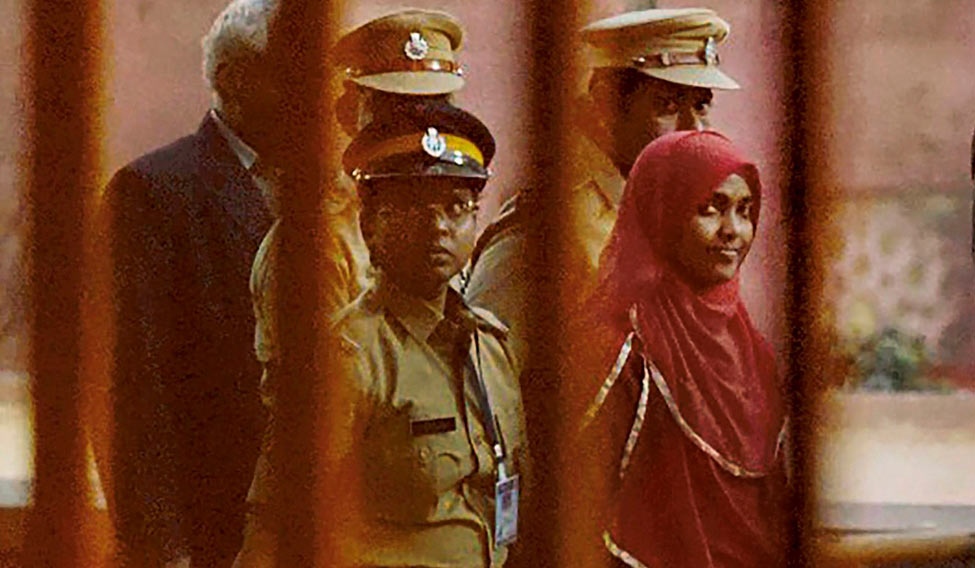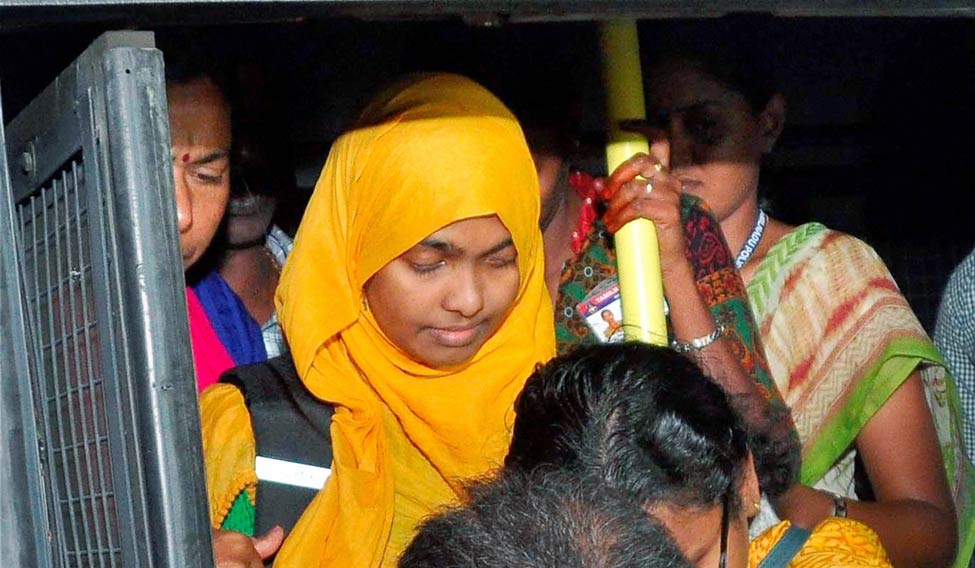Journalists across the Left/Right spectrum ask me why I call her “Akhila Hadiya” instead of either Akhila or Hadiya. I tell them frankly, it is a conscious balancing strategy I took when I decided to intervene and support her.
I am a practising Hindu brahmin and a Right-leaning activist, but it is my duty as an Indian to help her. I met Akhila Hadiya over a period of two months and spent hours of quality time with her discussing life, conversion, pain and captivity. I openly told her that I disagreed with her conversion (all conversions) and the choices she had taken in the past two years.
I openly supported her father Ashokan's side of the argument in all the regional and national TV channels and fought against both the “liberal human rights side and Islamist conversion side” with great conviction.
I am still aligned with her father's worldview on many things, yet I couldn't bring myself to say that she was wrong after I met her.
On August 17, she told me about the suffering she was undergoing and that she was being kicked, beaten and subjected to physical and mental harassment. In her video to me, which in effect secured her release from the Supreme Court, she explains her pain and fear for life. When a girl of 24 tells me that she could be killed any day, I couldn't bring myself to say, “You are in the opposite camp, you are on the other side of the political spectrum, so I don't care”.
I communicated this to Justice R.V. Raveendran on August 23, then to the Kerala Women's Commission and Human Rights Commission. The fear in her eyes haunted me more than what my “socio-political constituency would have wanted me do”. I have heard a lot of abuses from ultra-Right wingers, and also complained to the ADGP of Kerala, police commissioner of Thiruvananthapuram city for the death threats I have received. But it is my duty as an Indian to uphold the constitutional values our nation was founded on.
I could have kept quiet and the case regarding Akhila Hadiya would have dragged on for years, and her captivity too. But that is not what a good Hindu and Indian should do. India is a land of great diversity and pluralism, and it is only the values of our Constitution and history that can make our nation move ahead.
Chief Justice of India, Dipak Misra, went on to say “this is one of the most complex cases that I have seen in my life”. Both sides have strong arguments to make against the other. The apex court will have to find a thin balance and a tight rope walk between both.
 Held too long in captivity | PTI
Held too long in captivity | PTI
Activists like me felt vindicated when she was moved to a third place, apart from her father and husband (their marriage was annulled though). We have been talking about this safe third place, so that the case can go on and yet she will not fear for her life.
From Ashokan's side, the strong argument is that Akhila's was a “sham marriage” conducted by Islamist radicals, as found out by Kerala High Court. To be fair, that argument is strong and true. The “sham marriage” was conducted to circumvent the court's jurisdiction and to dilute her father's locus standi. From Akhila Hadiya's side, the core argument is that, “it is my choice and free will, both conversion and marriage”.
The NIA has strongly taken the side of Ashokan and human rights, and liberals have taken the side of Akhila Hadiya. As a person who believes in Gandhian consensus, I didn't want her to be the object of a tug-of-war and held hostage to the fight between Hindutva and Islamist hardliners.
Akhila Hadiya case will go down in legal history as one of the most prominent cases where the issues of personal freedom, religious conversion, terrorism, marriage as a strategy and family bonding, all clashed with each other. I don't know which side will win at the end, but whichever side wins, it will fuel competitive communalism. These hardliners do not care for Ashokan or Hadiya.
Hindu hardliners want to portray Ashokan as the “poor Hindu father whose daughter was cheated by 'Love Jihad'”. Islamist hardliners want to portray Hadiya as the victim of being a Muslim in India and injustices they face. Neither of the two pictures are true. The issue is about a girl who never had good a relationship with her mother and who grew distant from her father in her youth.
Whether we call God by the name of Vaikathappan, Paramasiva, or Allah, by the end of day, I am sure God will deliver justice to both in the form of the Indian Constitution.
Rahul Easwar is a social activist.
Disclaimer: The views expressed in this article are solely those of the author and do not necessarily represent the views of the publication









